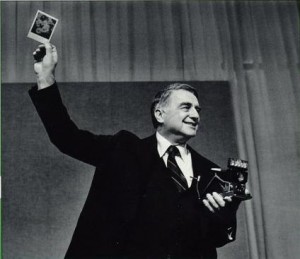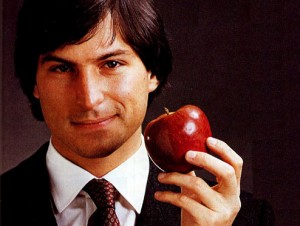History has made the split between inventors and visionaries quite evident. And right now, it matters the most because it decides the fate of an idea, whether it lives to see itself revolutionize the world or find its place in a museum.
Inventors are concerned with “how” while visionaries are busy figuring out “what“. You just can’t simply say who is more valuable, its more like the chicken-egg problem, both are equally important and in no manner am I going to debate their significance but what direct impacts they had.

Edwin H. Land, straight from the 1930’s, devised the first inexpensive polarizing film. These were to become the foundations of the modern day cameras. He founded Polaroid which tried a hand at making it a commercial success. At first, it worked out because they were the first ones in the market but the future was bleak. His next attempt, Polavision — an instant movie system venture, was a financial debacle which lead to his resignation from Polaroid’s board. Later, Polaroid went through multiple reorganizations and finally went bankrupt. All the while he was at Polaroid, he was a genius chemist and inventor but not a visionary.
It was meant to happen. Land wasted the potential. Although he did make attempts like the optics in Lockheed U2 program but not enough to just make it. It could have been great, but things are different now. He didn’t see his idea’s future. He failed to imagine the possibilities with his products and concepts and thus became a great example for my post.
I would be deemed insular to measure success merely on the basis of financial gains. But Money, you see is like food. You like it or not, you need it to survive. Land failed miserably here as he couldn’t make polaroid a financial succes.

Ironically, he inspired one the visionaries of our times, Steve Jobs. He wasn’t the inventor, he just knew what was to be done and he executed it perfectly. He filled up all the loopholes in Land’s story.
He founded Apple with a team of inventors who were guided by him. He simply polished their work. Every product manufactured by Apple after Job’s return to Apple was a hit. It’s not just luck. Every idea seemed to invite the future and exploit everything Apple had (Ofcourse, until Apple felt it was ready for the public).
More than the products, he left a culture and culmination of methodologies which keep Apple alive today. He filled all the top ranks with his vision and hypnotized them into taking every decision with future in mind. Only the far-sight and foresight have allowed Apple to reach crazy financial benchmarks coupled with technological breakthroughs.
Jobs and Land are symbolic of those people who construct the future. Its difficult to spot someone with Scientific and Rational thinking of an Inventor combined with the creative and imaginative decision taking approaches but when these two come together, expect a good show.




This reads like your research of Edwin Land and his magnificent inventions consisted of briefly skimming his Wikipedia page. Edwin Land absolutely was a visionary (as well as an inventor). You’re taking a far too narrow view of his work. He was able to predict and cater to photography’s invasion by mankind’s thirst for instant gratification before anyone else in the industry knew it was coming. Improving on something people didn’t know needed to be improved and inspiring droves of imitators (who were never able to make it better) make the man an unquestionable visionary. Digital photography is an extension of the basic principles of Land’s work (what Edwin didn’t predict was the decline of physical media). Polaroid, in its prime, was a huge commercial success, at its height outselling the Titan that was Kodak. Polavision was only one product line and Edwin Land’s only commercial failure after 30 years of success and innovation. You seem to greatly admire Steve Jobs, I would think you would want to take some more time to examine the people and ideas that inspired him. Edwin Land envisioned the impossible and made it reality.